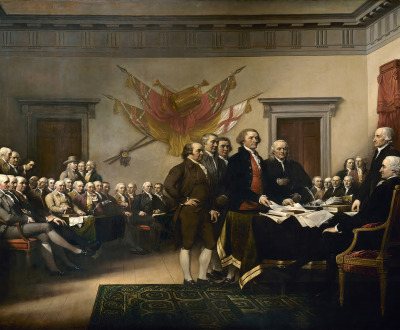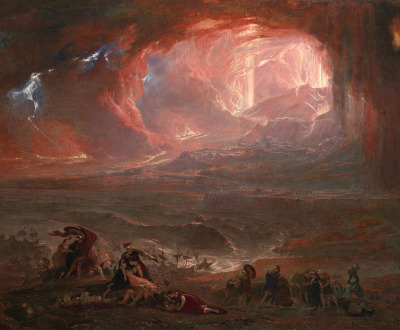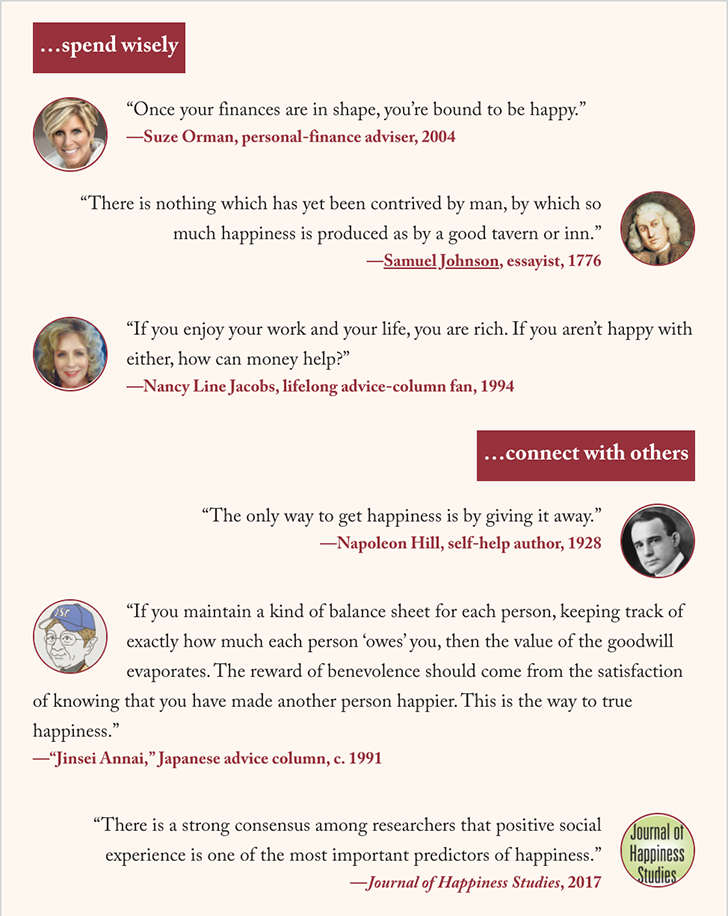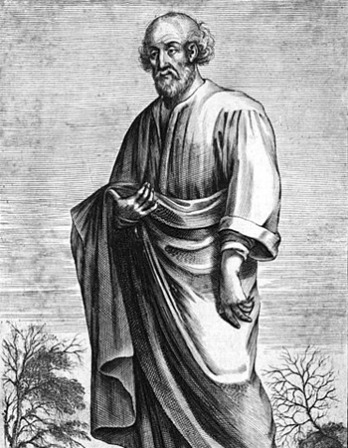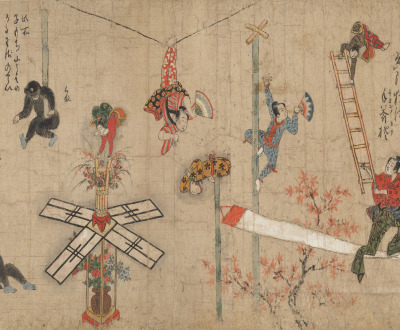
Acrobats (detail), Japanese handscroll, nineteenth century. The Metropolitan Museum of Art, Gift of Mrs. Henry J. Bernheim, 1945.
VIEW:
Miscellany
In his Lives of the Eminent Philosophers, Diogenes Laërtius tells of Socrates’ disciple Aristippus, who “derived pleasure from what was present, and did not toil to procure the enjoyment of something not present.” Such opportunism was not widely admired; Aristippus was sometimes called “the king’s poodle.”
There is only one honest impulse at the bottom of puritanism, and that is the impulse to punish the man with a superior capacity for happiness.
—H.L. Mencken, 1920